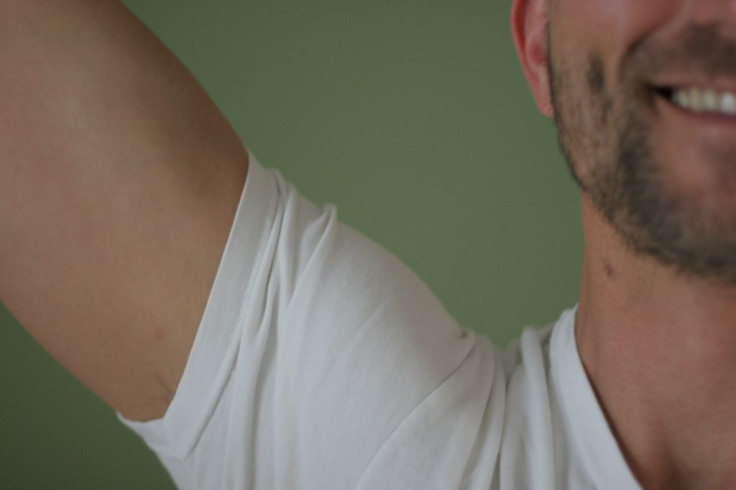What Causes Body Odor? Small Amount Of Thioalcohols, The Bacteria Species In Armpits, Makes You Stink

We know bacteria are to blame for body odor; the bacteria on our skin break down sweat molecules and produce a nose-wrinkling smell. Yet the underarm microbiome has remained somewhat of a mystery. Or at least it was prior to the research presented at this year’s Society for General Microbiology’s Annual Year in the UK.
Dr. Dan Bawdon, from the University of York, worked with consumer goods company Unilever to assess 150 bacterial isolates’ ability to produce (smelly) chemical compounds known as malodorants. Bawdon and Unilever ended up identifying the genes that encode the proteins for thioalcohols, a key player in body odor, which are pungent in very small amounts. When thioalcohols were combined with bacterium Escherichia coli and grown in human sweat molecules, it resulted in body odor.
“This work has significantly advanced our understanding of the specific biochemical processes involved in body odor production,” Dan Bawdon, study author, said in a press release. “It was surprising that this particular body odor pathway is governed by only a small number of the many bacterial species residing in the underarm.”
So basically, there are genetic pathways to stinky armpits. Bawdon’s research is important for two reasons: The first is few studies before his knew much about how body odor was produced by bacteria in the underarms. And the second is this particular research opens up new opportunities for companies to develop products that specifically target the proteins found in thioalcohols.
Traditional deodorant and antipersperiants, Bawdon added, non-selectively kill bacteria or block out sweat glands entirely. A targeted product could provide better, long-lasting relief for those struggling with body odor.
That’s not to say those struggling are without any options in the time it takes for this magical product to appear on the market. There are existing, natural remedies (aside from a swipe of your Speed Stick) to reduce smell. For one, regularly shaving your underarms keeps bacteria from getting trapped in porous hair. Excess hair easily absorbs odors and even slows the evaporation of sweat.
Next, look at your diet. Foods, such as alcohol, asparagus, coffee, and too little greens, can be released through our sweat. For a complete list, click here.
Source: Bawdon D. Battling body odour: Transport and catabolism of malodour precursors by the underarm microbiota. The Society for General Microbiology’s Annual Conference. 2015.
Published by Medicaldaily.com



























